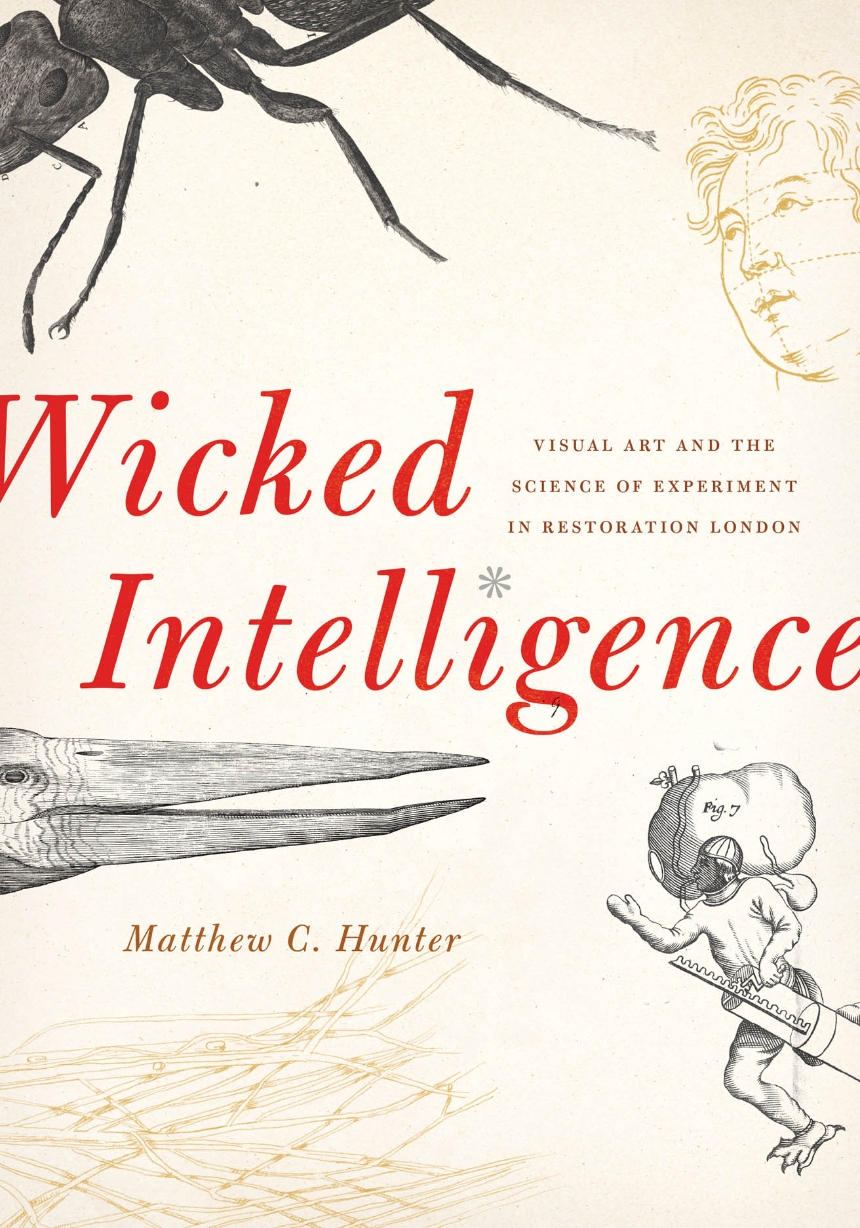Wicked Intelligence
Visual Art and the Science of Experiment in Restoration London
9780226017297
9780226017327
Wicked Intelligence
Visual Art and the Science of Experiment in Restoration London
In late seventeenth-century London, the most provocative images were produced not by artists, but by scientists. Magnified fly-eyes drawn with the aid of microscopes, apparitions cast on laboratory walls by projection machines, cut-paper figures revealing the “exact proportions” of sea monsters—all were created by members of the Royal Society of London, the leading institutional platform of the early Scientific Revolution. Wicked Intelligence reveals that these natural philosophers shaped Restoration London’s emergent artistic cultures by forging collaborations with court painters, penning art theory, and designing triumphs of baroque architecture such as St Paul’s Cathedral.
Matthew C. Hunter brings to life this archive of experimental-philosophical visualization and the deft cunning that was required to manage such difficult research. Offering an innovative approach to the scientific image-making of the time, he demonstrates how the Restoration project of synthesizing experimental images into scientific knowledge, as practiced by Royal Society leaders Robert Hooke and Christopher Wren, might be called “wicked intelligence.” Hunter uses episodes involving specific visual practices—for instance, concocting a lethal amalgam of wax, steel, and sulfuric acid to produce an active model of a comet—to explore how Hooke, Wren, and their colleagues devised representational modes that aided their experiments. Ultimately, Hunter argues, the craft and craftiness of experimental visual practice both promoted and menaced the artistic traditions on which they drew, turning the Royal Society projects into objects of suspicion in Enlightenment England.
The first book to use the physical evidence of Royal Society experiments to produce forensic evaluations of how scientific knowledge was generated, Wicked Intelligence rethinks the parameters of visual art, experimental philosophy, and architecture at the cusp of Britain’s imperial power and artistic efflorescence.
352 pages | 10 color plates, 66 halftones | 7 x 10 | © 2013
Architecture: British Architecture
Art: British Art
History: History of Ideas
Reviews
Table of Contents
CONTENTS
LIST OF ILLUSTRATIONS
ACKNOWLEDGMENTS
NOTE ON CONVENTIONS AND DATES
LIST OF ILLUSTRATIONS
ACKNOWLEDGMENTS
NOTE ON CONVENTIONS AND DATES
INTRODUCTION
“Very Able, Very Sordid, Cynical, Wrong Headed and Whimsical”
“Very Able, Very Sordid, Cynical, Wrong Headed and Whimsical”
CHAPTER ONE
“I Resolved to Throw Aside All Manner of Hypotheses . . . and to Attend
Wholly to What the Appearances Themselves Would Teach Me”
CHAPTER TWO
Knives Out: Thinking On, With, Through, and Against Paper in the Mid-1660s
CHAPTER THREE
Pictorial Intelligence: Peter Lely, Experimental
Culture, and the Parameters of Painting
CHAPTER FOUR
Cascade, Copper, Collection: Constellations of Images
in 1670s Experimental Philosophy
CHAPTER FIVE
“The Wonderful Elaboratory of the Animal Body”:
The Royal Society’s Repository at Work
CHAPTER SIX
The Architecture of Science and the Science of Architecture
CONCLUSION
NOTES BIBLIOGRAPHY INDEX
Awards
College Art Association: Charles Rufus Morey Award
Finalist
Historians of British Art: Historians of British Art Book Prize
Won
